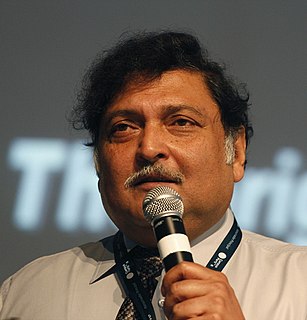A Quote by Michelle Dean
Bad criticism recites rote arguments. The shame of rote arguments isn't just that they're cliches, though they are, but that they tend to hide from us why a critic is actually thinking what they're thinking.
Related Quotes
Critical thinking does seem a superior sort of thinking because it seems as though the critic is actually going beyond the scope of what is being criticized in order to criticize it. That is only rarely a true assumption because, most often, the critic will seize on some little aspect that he or she understands and tackle only that.
Most of this film, however, is about interpretation - are these people terrorists or freedom fighters? Are they good or bad? Is cutting timber good or bad? And I don't feel like the answers to those questions are simple, so we don't try to answer them for the audience. I wanted to elicit the strongest - and most heartfelt - arguments from the characters in the film and let those arguments bang up against the strongest arguments of their opponents.
I have a bad rote memory, but I tend to learn through my experiences. And then when I went into the markets, and then starting my business as an entrepreneur, that affected my thinking a lot, too, because in order to be successful as both an investor and an entrepreneur, one has to be an independent thinker and bet against the consensus and be right. Because the consensus is built into the price, and if you're not an independent thinker in the markets you won't succeed. And if you're not an independent thinker as an entrepreneur starting out, you're not going to bring anything special.
Any story that gets us thinking, and particularly young people, thinking why? Whether it's as a result of reading the book, or coming out of the theatre or the cinema, I think we should just simply be asking the question 'why'? Why did it happen to those people? Was it necessary? And anything that gets us thinking like that is really important.
One of the difficulties of politics is that politicians are shocked by those who are really prepared to let their thinking reach any conclusion. Political thinking consists in deciding upon the conclusion first and then finding good arguments for it. An open mind is considered irresponsible- and perhaps it really is.
I am well acquainted with all the arguments against freedom of thought and speech - the arguments which claim that it cannot exist, and the arguments which claim that it ought not to. I answer simply that they don't convince me and that our civilization over a period of four hundred years has been founded on the opposite notice.

































